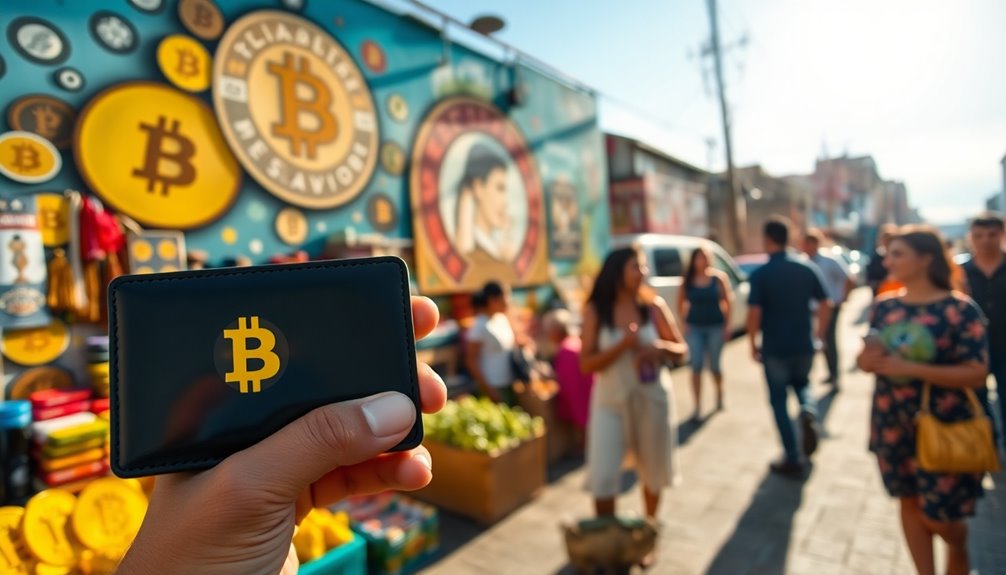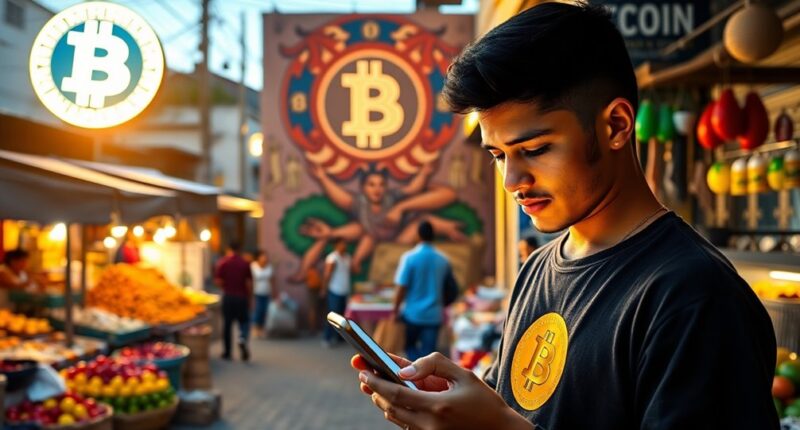You might be surprised to learn how Bitcoin's status has shifted in El Salvador following the IMF arrangement. Once hailed as a revolutionary currency, its usage has dwindled, with only a small fraction of the population engaging with it. As the government pivots towards economic reforms and stability, the implications for businesses and everyday users are becoming clearer. What does this mean for the future of cryptocurrency in the country?

Bitcoin has sparked both excitement and skepticism in El Salvador, a country that made headlines by adopting the cryptocurrency as legal tender. However, as of 2023, only 12% of the local population actively uses Bitcoin for transactions, a significant drop from 24.4% in 2022. Many who do use it make only a few purchases—nearly half of users report using Bitcoin just one to three times.
You'll find that groceries and veterinary services are the most common places where Bitcoin transactions occur, but the overall enthusiasm seems to be waning.
You might be surprised to learn that only 6.8% of respondents in surveys felt that Bitcoin improved their lives, with a mere 0.5% believing it had any positive impact on the country's economy. This sentiment reflects a growing skepticism about Bitcoin's promised benefits.
Despite El Salvador holding 6,024 BTC, valued at about $569 million, the general perception is that the cryptocurrency hasn't delivered the economic improvements many hoped for. Mixed feelings about Bitcoin usage are evident, as 93.2% of respondents did not link their personal well-being to it.
The International Monetary Fund (IMF) has played a significant role in shaping the future of Bitcoin in El Salvador. In exchange for a $1.4 billion financing package, the government agreed to limit Bitcoin's use, making acceptance voluntary for businesses. Public sector involvement is also being curtailed.
This agreement aims to support broader economic reforms and address the nation's balance-of-payment needs. So, if you're looking at Bitcoin as a mainstay in the local economy, you might need to reconsider, given the IMF's growing influence.
Interestingly, while Bitcoin's role is diminishing, El Salvador's tourism sector is booming, with a 22% increase in visitors noted in 2024. The decline in crime rates and improvements in infrastructure have contributed to this growth, attracting more investments and US tourists, some of whom are drawn by Bitcoin's novelty.
This tourism surge could pave the way for increased economic stability, even if Bitcoin isn't the centerpiece.
Looking ahead, you might notice that the Chivo wallet, designed for Bitcoin transactions, is set to be phased out. The voluntary nature of Bitcoin acceptance means that businesses will no longer be compelled to engage with it.
As the country navigates its economic landscape amid IMF pressures, the experiment with Bitcoin as legal tender faces significant challenges and criticism, leaving you to wonder what the future holds for this ambitious initiative.









